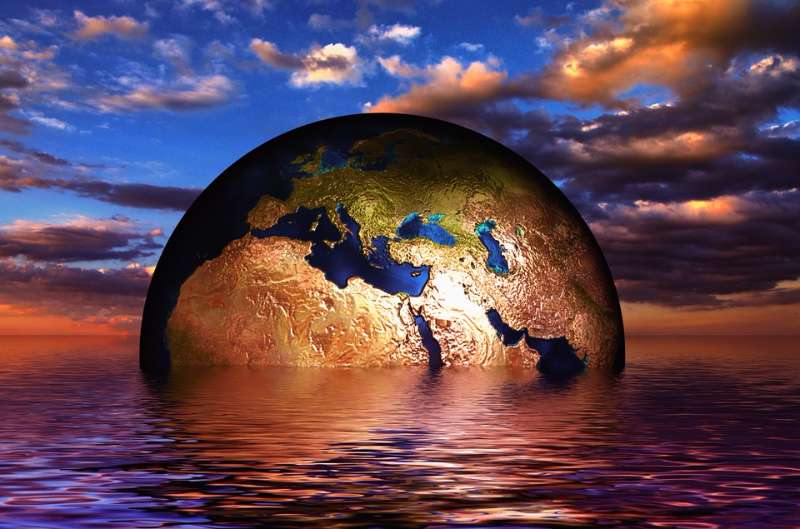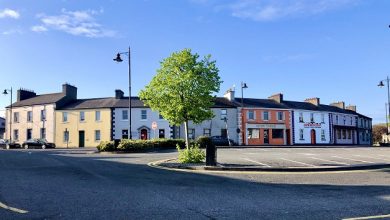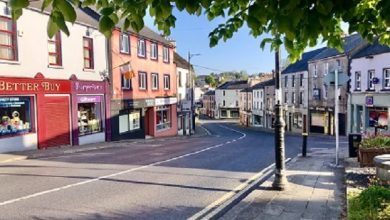Strong and immediate action needed on climate change

The EPA recently published their report on the impacts that Climate Change is already having on Ireland. It is very clear that here in the North West of the country we are already experiencing more storms, more rain, more flooding, and wetter land all year round, according to a spokesperson for the Green Party in this area.
The Green Party has said climate change is no longer a problem of the future but is affecting the people of Ireland right now, as clearly stated in the Environmental Protection Agency (EPA), Met Éireann (MÉ) and the Marine Institute (MI) published ‘The Status of Ireland’s Climate’ report. The report finds that global warming has resulted in Ireland’s climate becoming warmer and wetter, and that the concentration of greenhouse gases – carbon dioxide, methane and nitrous oxide – has continued to increase since 2012 with long term implications for our climate.
Responding to the report, and in the context of the IPCC Report also published this week, Dr Bláithín Gallagher – Constituency Spokesperson and National Coordinator of the Green Party/An Comhaontas Glas said:
“ While we here in the North West of Ireland s are fortunately not suffering the massive wildfires, biblical scale floods and never ending droughts that are devastating so many people across the globe, we are still experiencing significant changes in weather patterns. The immediate impacts that are already being caused across the region include the kind of localised flash floods, experienced in the last few days.”
“The changes in weather patterns has also clearly impacted on the farming community, with land being waterlogged for longer periods each year, and increasingly unpredictable fodder yields. With the worsening of these trends, the generally extensive family farms of this region will find it harder and harder to operate successfully, as time progresses, and will need to be assisted in diversifying into new enterprises. Such diversification could include, for example, the roofs of farms buildings being used for solar installations. Agroforestry and the use of agroforestry, with the introduction of native trees into grazing land would help drain the land whilst providing shelter for animals from extreme weather events.”
“What is certain is that all of us need to work together, both to dramatically reduce emissions, and to deal with the consequences of the rapidly-evolving consequences of climate change. We owe it to ourselves and the generations to come to take action and take it now”
Minister of State for Land Use and Biodiversity, Senator Pippa Hackett said;
“As a farmer, and as someone who lives in rural Ireland, today’s report is not a surprise. The impacts of climate change are already evident and are having a significant effect on lives and livelihoods. The increased incidences of summer flooding of the Shannon Callows in my own region, for example. We need to focus now on addressing climate change head on. The Government will shortly publish the Climate Action Plan 2021 and I am looking forward to this outlining the measures we need to take to reach our 2030 targets. My particular focus, of course, is on agriculture and land use and I am optimistic this sector will rise to the challenge. But now, more than ever, we need collaboration and constructive engagement. Those promoting a ‘business as usual’ response have will have to, literally, sink or swim on their own.”
Minister of State for Heritage and Electoral Reform, Malcolm Noonan TD, said;
“This report brings the findings of this week’s IPCC assessment much closer to home. Climate change is not a future problem or a faraway problem – it’s affecting you and me, right here in Ireland, right now. There is a huge task ahead of us, and the Climate Bill has set that out in law. Now, it’s down to all of us – Government, communities, farmers, foresters, businesses, NGOs, everyone – to work together and deliver the change we need. For my part as Minister for Heritage, I know that nature is our greatest ally in our response to climate change. Healthy ecosystems capture and store carbon in bogs, woodlands, and oceans, and are our first and best line of defence against extreme weather events. The challenge is immense, but together, we can do this: for each other, and for all life on earth. We have to.”



